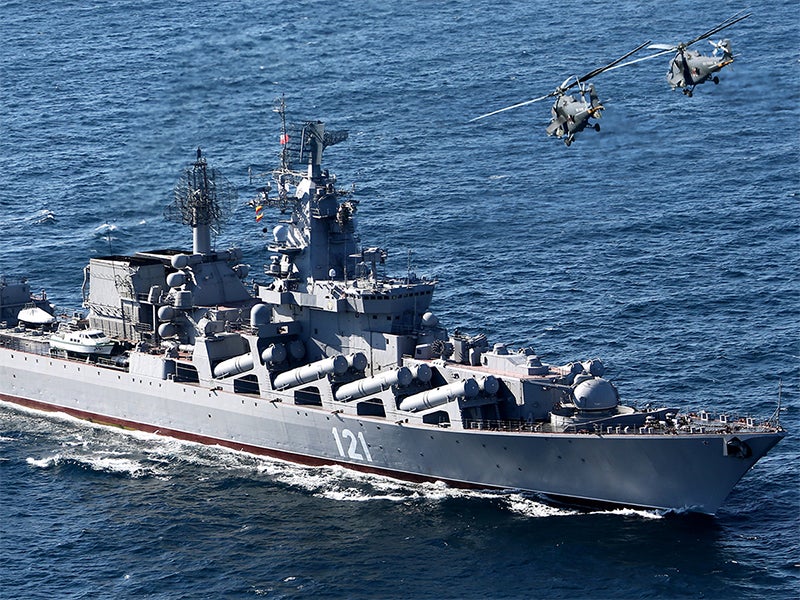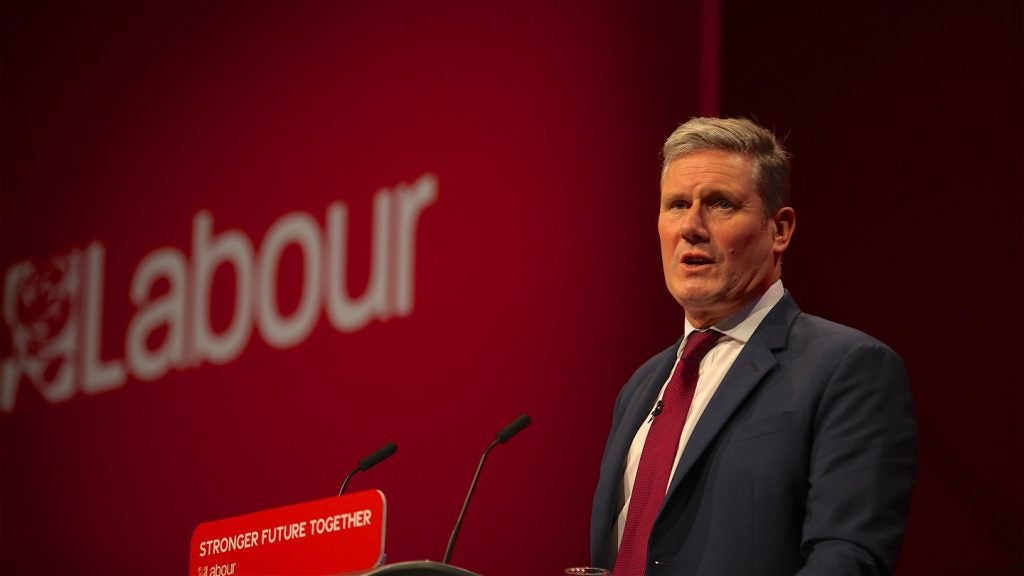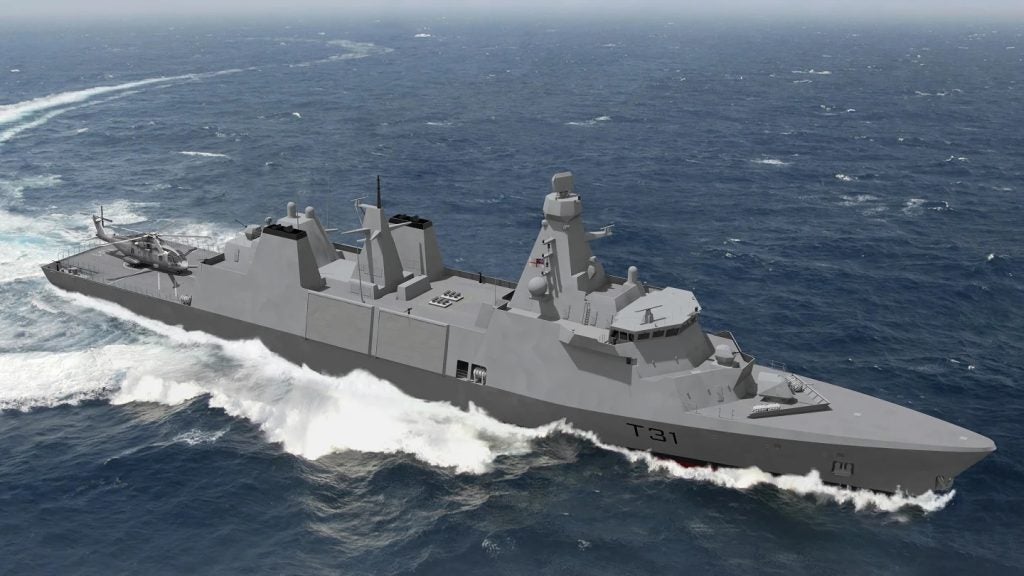The sinking of the Russian Navy’s Slava-class cruiser the Moskva has brought the Russian Navy into close scrutiny from outside observers. Its loss on April 14 to a reported attack by two Ukrainian shore-launched subsonic ‘Neptune’ missiles is a surprising shock for a military often described as one of the world’s foremost powers. Despite Russian claims that a fire of unspecified origin was the cause, video evidence corroborates the report that the Black Sea Fleet’s flagship was lost to enemy action.
Asides from the morale impact of such a significant loss, it raises questions over the capabilities of the Russian Navy, a force which has undergone an extensive program of shipbuilding, refitting and modernisation since 2011. The Moskva underwent repairs and modernisation itself from 2018 to 2020, making its sinking more perplexing: it carried a triple-tiered air defense system and powerful radars to guide its missiles, yet was apparently blindsided by Ukraine’s first domestically produced anti-ship missile travelling at a relatively low speed by today’s standards. It raises questions about the quality and successes of Russia’s naval regeneration, which will only be further damaged in the medium-to-long term by Western sanctions.
How well do you really know your competitors?
Access the most comprehensive Company Profiles on the market, powered by GlobalData. Save hours of research. Gain competitive edge.

Thank you!
Your download email will arrive shortly
Not ready to buy yet? Download a free sample
We are confident about the unique quality of our Company Profiles. However, we want you to make the most beneficial decision for your business, so we offer a free sample that you can download by submitting the below form
By GlobalDataAs Russia began to reassert itself on the international stage in the 21st century it needed to reverse the decay and disrepair that had set in since the collapse of the Soviet Union, making a fleet to compete with Western sea power and project influence. The ambitious program has involved procuring new vessels of almost all classes, from corvettes and frigates to amphibious landing ships and icebreaking patrol boats. The submarine fleet, which accounts for over half of all naval tonnage, has received new nuclear and conventional-powered vessels for both strategic deterrence and conventional warfare.
Working on such a scale would be an enormous challenge for any country’s shipbuilding industry, and Russia has already failed to meet a deadline for 100 vessels by 2020, with many projects pushed back or revised due to major issues. The impact of the Covid-19 pandemic has been overshadowed by far reaching sanctions due to the invasion of Ukraine, coming at a time when Russian officials admit their defense industry is ‘still dependent on foreign technologies’. Import substitutions have already caused five-year delays in building the propulsions systems for Buyan-class corvettes and the new Lada diesel-electric submarine for instance, and April 2022 sanctions on Russia’s United Shipbuilding Corporation will likely further hinder the pace of construction.
Despite steady growth in Russia’s shipbuilding industry over the last three years, the fact remains that much Russian military technology is dependent on imports. Whilst the specifications for Russian warships may be notable on paper, there is no guarantees that without technology and materiel from the West these platforms will function as intended, or that their domestic substitutes produce the same quality. Mission computers, semiconductor components and radars are all areas in which Russia is particularly behind. Rising demand for the precision strike missiles that equip these warships will also face hurdles due to their reliance on western components; fighting in Ukraine will have depleted these stocks already, and it is unclear whether Russia is able to replace these weapons in good time.
See Also:
It must also be remembered that there are other factors influencing the effectiveness of the Russian Navy. Personnel training, standards and welfare are all crucial in operating complex modern warships, and impressive armaments and technical capabilities are easily wasted on crews unfamiliar or incapable of utilizing them to their full extent. Russia still conscripts some sailors, and experts have suggested that the Moskva may have been saved if not for a lack of proper crew damage control training. Advanced naval platforms will necessitate increased spending on training, drills and qualifications, and it is unclear whether this is something Russia has invested in alongside its shipbuilding – but if the average naval conscript salary of 2,000 Rubles a month is anything to go by, then there appears to be an underinvestment that will further limit the effectiveness of the Russian Navy.
With all these factors considered, Russia’s naval modernisation program appears an overmatch of ambition and capacity. Whilst the proposed shipbuilding plan has produced some highly capable platforms – particularly the Gorshkov and Grigorovich class frigates – most programs have had repeated delays, face several component shortages and will likely have the final number of vessels cut short. Even a refit of the Kirov-class battlecruiser Admiral Nakhimov has faced setbacks as the realities of modernising such a large, complex vessel come up against a severe shortage in materiel and security in future funding. There has been much speculation over an anticipated program to construct a new class of aircraft carriers to replace the single aging Kuznetsov, but this seems increasingly unfeasible for a navy yet unable to produce a sufficient number of escorts.
The political fallout of Russia’s invasion of Ukraine will likely reverberate for many years to come, but at this time its leadership seems intent on defying international condemnation – instead opting to survive its coming isolation through self-sufficiency and finding willing economic partners. This is a dangerous position for a sensitive industry such as military shipbuilding to be in, and in the longer term, it may mean the Russian Navy becomes overstretched and unable to live up to the Kremlin’s vision of a global force able to stand up to western forces.










Related Company Profiles
United Shipbuilding Corp
Kremlin AG
Russian Navy